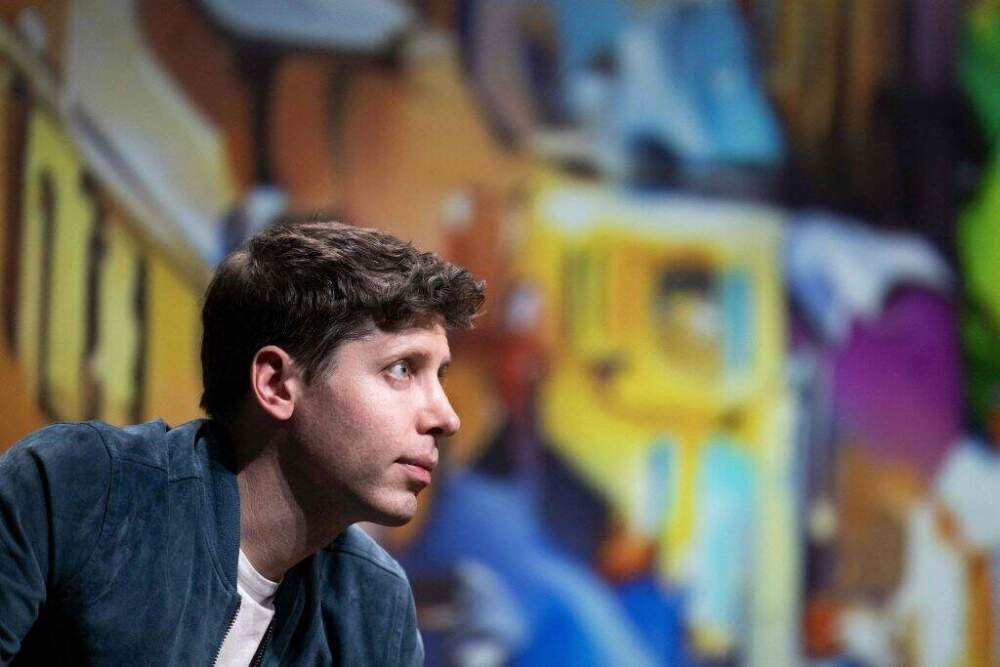Advertisement
Commentary
OpenAI is a threat to labor, but its employees staged one of the most successful collective actions in tech

Amidst all the palace intrigue at OpenAI, one thing is abundantly clear: the company’s workers are the reason that Sam Altman, the company’s CEO and cofounder, still has his job today.
According to reporting by Wired, on Monday, November 23, more than 730 of OpenAI’s estimated 770 employees signed an open letter to the company’s board, threatening to resign en masse unless Altman was reinstated as CEO, just a few days after he was fired by the company’s board. I’ll say it again: Over 95% of OpenAI’s workers threatened to quit their jobs. There was considerable investor pressure to reinstate Altman, of course — but would OpenAI’s board have reversed its decision without that show of unified worker power? I’m skeptical. Thanks to the letter, the board was asked to choose between either rehiring the ousted CEO, or watching essentially every worker leave the company with him.
If I’m honest, I struggled a bit with this news. Don’t misunderstand me: It’s inspiring to see tech workers collectively fight for change. By those standards, the open letter was certainly remarkable: The workers of OpenAI organized almost unanimously for a big change, and they decisively won.
Given all of that, I’ve been trying to articulate why I feel so conflicted about the letter. The first reason is because this happened at OpenAI, a company that’s at the heart of the modern artificial intelligence (AI) industry — an industry defined almost entirely by how anti-worker it is. AI platforms are, after all, trained on copyrighted texts and imagery created by humans, and these companies actively fight to avoid paying royalties or licensing fees to those creators. Many of these companies rely on a global underclass of marginalized workers, who toil for pennies an hour to sanitize what those platforms produce. And on top of it all, this generation of AI software is responsible both for depressing wages and eliminating jobs.
That’s a large part of why it was difficult for me to cheer the OpenAI workers’ letter. What made it even harder was comparing it to the last several years, in which tech workers have been steadily building collective power: They have signed open letters to move their leadership in more ethical directions; they have openly shared salaries to push for more equitable pay structures; they have staged mass walkouts to fight for safer working conditions. And they haven’t stopped there: Tech workers across the industry have formed unions, fighting for the guarantees that a union-negotiated contract can bring.
In short, these are big, courageous, structural fights. In each instance, tech workers were fighting for a seat at the table — not just to improve their wages, benefits and working conditions, but to also have a say in how their labor is used. Against that backdrop, the OpenAI letter felt almost modest to me. Their boss got his high-profile job back, it’s true — but what did those workers win for flexing their power?
Advertisement
With a resounding victory, and with a staggering level of worker support, the OpenAI letter is one of the most successful collective actions taken to date in the tech industry. But if all it achieves is restoring an influential CEO to his throne — in an industry whose products actively devalue human labor — then how does this action help tech workers?

I felt better when I remembered that worker power isn’t necessarily progressive. But neither is it conservative. Above all else, the labor movement is human, because workers are, in fact, human. American labor history offers plenty of examples of unions siding with big business; but it also gives us a long timeline of workers fighting for justice, fairness and a better vision of work.
That‘s why whatever reservations you or I might have about AI (and I have many), it’s still okay to applaud this display of tech worker power — especially if it serves to remind tech workers, at OpenAI or elsewhere, that they do have power at work.
What’s more, this letter didn’t happen in a vacuum. This year alone, the tech industry’s labor movement has been flexing its muscles. Union members at Code for America won their first contract; the workers of NPR’s digital union have their first tentative agreement in hand. What’s more, tech workers are growing increasingly confident about using strikes to gain much-needed wins: The tech workers’ union at the New York Times walked out to protest a forced return-to-office policy and tech workers at Klarna brought the Swedish fintech corporation back to the negotiating table by threatening a wide-ranging, multi-union strike.
In "Fight Like Hell," Kim Kelly writes, “Every story is a labor story, and every labor story invariably builds on years — if not centuries — of previous organizing and failures.” I love that line, not least because the tech industry’s labor movement has been telling more stories than ever before. And I think it’s worth contrasting that growing movement against the industry’s push for AI — a push that has, to date, been wildly unprofitable for the tech industry while AI’s most powerful advocates describe the technology as a cultural inevitability.
Perhaps in time, they’ll be proven right. But from where I sit, I think there’s a more likely outcome: Tech workers will continue to organize, and to unionize. Because if anything, tech workers’ recognition of their collective power as workers is only growing.
If that realization has reached the workers of OpenAI — a company that’s one of the labor movement’s greatest modern threats — then there’s reason enough to hope. And to look forward to what’s next.
Editor's note: Many WBUR journalists, including Cognoscenti editors, are members of SAG-AFTRA.
